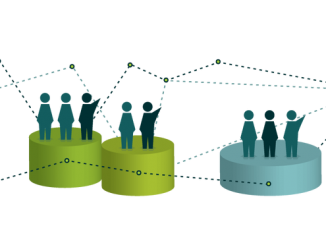
Blog op impraise.com, juli 2016. Ook Deloitte stapt over van een jaarlijkse performance cyclus naar een performance proces gericht op erkenning en feedforward en duidelijkheid over de team leaders intenties met de medewerker.
Deloitte joins Adobe and Accenture in dumping performance reviews
Deloitte, the largest professional services network in the world, has recently decided to revamp its performance review cycle for a process with a special focus on fueling performance in the future rather than evaluating the past. Founded in UK and headquartered in New York, the company currently boasts 200,000 professionals in over 150 countries, providing audit, tax, consulting, enterprise risk and financial advisory services.
Deloitte Joins the Change
Deloitte made the headlines in the April 2015 issue of Harvard Business Review with an article penned by Marcus Buckingham and Ashley Goodall, both specialized in performance management and leadership development. Similar to the visionary Adobe and Accenture dumping and redesigning annual performance reviews, Deloitte long knew that their old performance management approach neither boosted employee engagement nor high performance. Deloitte conducted a public survey to find out what managers thought of performance reviews, and 58 percent of managers stated that traditional performance reviews did not serve its purpose. Considering that performance reviews did not go through any palpable transformation since its inception, the number does not take most professionals by surprise.
This is not to say that performance management is seen as redundant among managers and employees. The current workplace environment has an ever-increasing focus on growth and learning as key areas of job satisfaction. According to a study by Intelligence Group, 72 percent of millennials want to be their own bosses at work. If they do have a boss, 79 percent of them state that they want their bosses to serve as a coach or a mentor. The research explains that there is a need for a performance management system designed to guide employees into being more equipped experts in their line of business.
Revisiting the Old
With these observations in mind, Deloitte went on to go through their own performance review cycle. With the old system, objectives would be set for each employee across the whole organization at the beginning of a year. Then employees would be rated on how well they have met their objectives after the end of a project. Moreover, managers would also identify where they thought their employees improved. These evaluations would form the basis for annual ratings, where counselors would represent employees to discuss where each one stood compared to their coworkers.
People at Deloitte thought that their process was fair in terms of its predictability. However, Deloitte management was convinced that they needed conversations that were realized right after a certain project instead of at the end of the fiscal year. Besides, it was discovered that the whole performance review cycle – filling in forms, holding meetings and doing the actual ratings – consumed around 2 million hours a year. Most of this time was apparently spent discussing ratings instead of actually talking to employees about their performance.
“It was discovered that the whole performance review cycle – filling in forms, holding meetings and doing the actual ratings – consumed around 2 million hours a year.”
DELOITTE’S SOLUTION
One of the most important observations that Deloitte made with their old performance reviews was the implied subjectivity of ratings. To give an example, if you are rating someone on their ability to engage with their coworkers, you are rating that person based on how important you think engagement is. In other words, when you are rating someone on a skill without any provided context of that person’s specific performance, you are actually revealing more about yourself rather than about the employee. This is called the ‘idiosyncratic rater effect’.
Every company needs to design and develop their own performance reviews in order to get the best efficiency out of it. At Deloitte, this meant identifying three ways of addressing performance: Recognizing, seeing and fueling performance.
“If you are rating someone on their ability to engage with their coworkers, you are rating that person based on how important you think engagement is.”
Voor de rest van het artikel: klik hier



